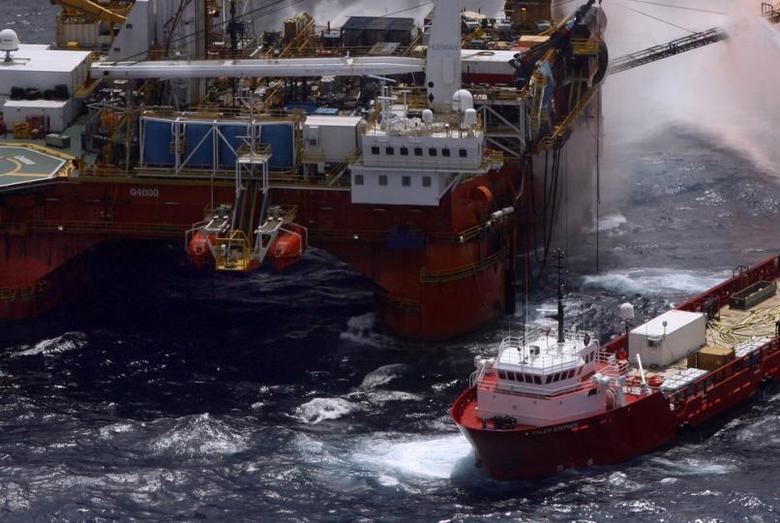
CHINA: DIESEL DEMAND FALL

China's diesel demand is set to post its first fall in more than a decade this year, sources at the country's top oil majors said, as a sputtering economy takes its toll on key industrial sectors.
Diesel, used to run trucks and tractors and generate power at construction and mining sites, is a bellwether of industrial activity. A fall in real consumption may signal China's economic slowdown is worse than official statistics indicate.
Recent economic data has boosted confidence that the world's second-biggest economy is regaining momentum after a spate of stimulus measures, although unexpected weakness in the services sector shows the recovery is still fragile.
Diesel sales by dominant state refiner Sinopec Corp and PetroChina, which together supply nearly 90 percent of China's market, are set to post an annual decline in 2014 following falls in the first half, two sources with knowledge of the firms' fuel marketing told Reuters.
Weak domestic sales would force refiners to keep up hefty diesel exports, weighing on a stagnant Asian market and crimping the return for processing crude oil into diesel, known as the gas oil crack, which is near a 3-1/2 year low.
Diesel makes up about a third of China's total oil demand.
PetroChina, the country's second-largest refiner, recorded a near 5 percent drop in domestic sales in the first half of 2014 from a year ago, and is likely to end the whole of 2014 with a similar decline, said a fuel marketing executive.
Sinopec, Asia's largest refiner, also looks poised to post a drop in diesel sales for 2014, having seen sales decline "quite a bit" in the first half, according to a company official.
Both sources requested anonymity as they were not authorised to speak to media on sales figures.
"An outright fall in diesel sales is something I can't recall for many years," said the first executive. "Coal mining, construction activities are slowing and so is transportation."
Real fuel demand in China is difficult to gauge as the world's second-largest oil user only publishes production and import-export data, but rarely gives information about fuel inventories.
Implied demand for diesel, which adds refinery crude throughput to net fuel imports but does not take account of inventory movements, rose 0.5 percent in the first half, according to Reuters calculations.
Sinopec and PetroChina did not respond Reuters' questions on diesel sales.
The drop in diesel demand has come as China, already the world's top energy consumer, tries to shift its economy away from an investment-led model to reduce overcapacity. Banks have also tightened credit to curb investments in energy-guzzling sectors such as cement plants, glass-makers, coal miners and steel mills.
"When the economy - particularly the industrial sectors, the main investment part of the economy - slows down, that affects diesel a lot," said Dr. Kang Wu of energy consultancy FGE.
SPUTTERING ECONOMY
Dragged lower by weaker spending in oil and gas exploration as well as the iron ore and base metals sectors, China's fixed asset investment growth slowed to 17.3 percent year-on-year in the first half of 2014, from 20.1 percent a year earlier, official data showed.
But shrinking diesel consumption, along with slackening coal demand, suggests that the state of China's key industrial sector, may be more gloomy than official statistics show.
Coal sales in China in the first half of 2014 fell 2.3 percent from year ago to 1.73 billion tonnes, even though imports only rose 0.9 percent. Slackening demand means fewer trucks are running on the roads to send coal from provinces such as Inner Mongolia and Shanxi to the coastal cities.
The first executive said diesel consumption in northern China was the worst hit, with some areas down 10-20 percent in the first half from a year earlier, while growth in the central and western parts of China was also losing momentum.
PetroChina reported in April that its diesel sales fell 15.4 percent in the first quarter of 2014 on a year earlier to 17.95 million tonnes. Its next update on fuel sales will be in late August.
Consultancy IHS CERA expects China's diesel demand to fall 0.4 percent this year, the first decline since the research firm started tallying Chinese oil demand in 2002, after taking into account of its own estimates on inventory changes.
GAS DISPLACEMENT?
Chinese oil firms have also been trying to replace diesel in trucks and ships with cleaner-burning liquefied natural gas, which has been super-chilled into liquid form. Gas is also more economic and offers more power per mileage.
But experts said the displacement rate had been slower than expected since the start of the year as overall energy demand has slackened and the cost of natural gas has climbed.
IHS CERA estimated that inventory-adjusted diesel demand fell 1.8 million tonnes in the first half from a year earlier, while incremental displacement of diesel by natural gas was less than 0.41 million tonnes.
Sinopec, which reported a 5.1 percent drop in diesel output in the first half of 2014, said its total refined fuel sales in the same period edged up 0.4 percent to 81.04 million tonnes.
It did not give a breakdown for diesel, gasoline and kerosene, but industry sources and CERA researcher Yan Kefeng said gasoline and kerosene sales in China both grew strongly in the first half, suggesting a solid fall in diesel sales.
reuters.com




